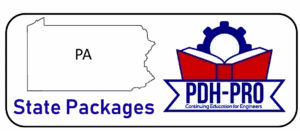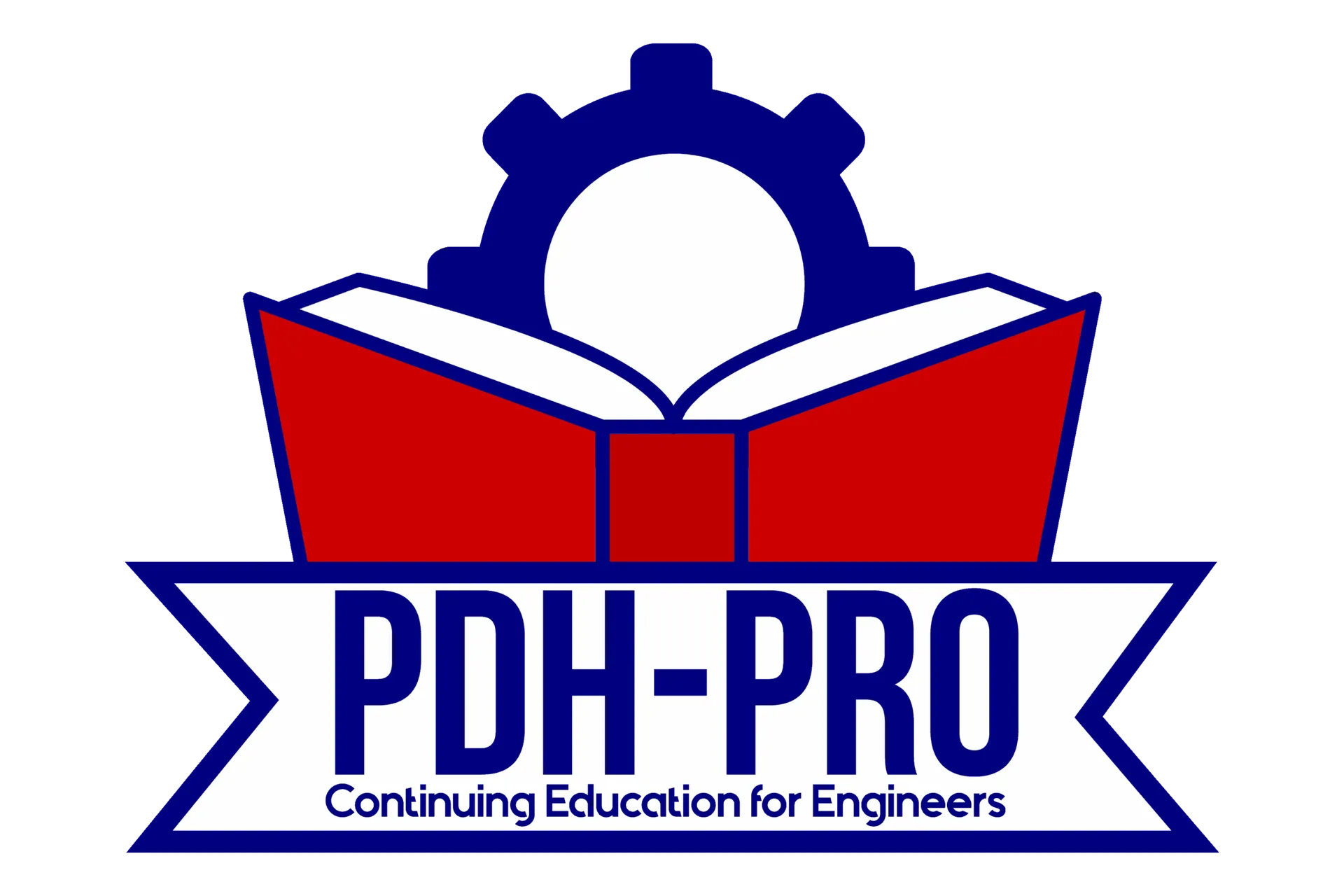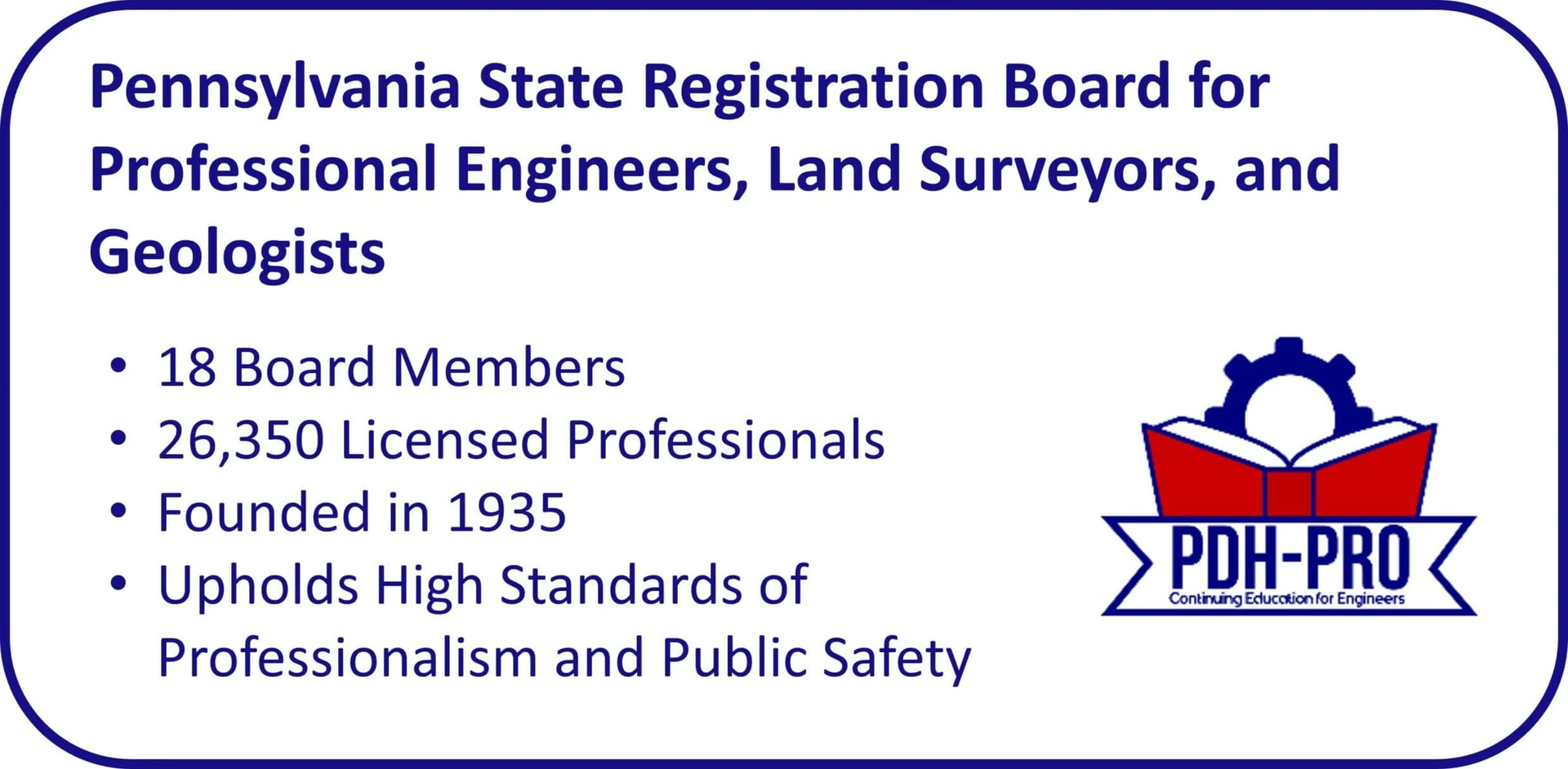CEU Requirements for Pennsylvania Professional Engineers
If you are a Pennsylvania engineer renewing your license, you may be asking – What are the continuing education requirement for Pennsylvania professional engineers?
Pennsylvania professional engineers are required to earn 24 professional development hours every two years (biennally). The Board allows a maximum of 12 hours to be carried over to the next renewal period. License renewal is September 30th of odd numbered years.
PA Engineers can earn PDH credits through a variety of ways including online courses, conferences, and live webinars.
There are several options available for satisfying the engineering continuing education requirements in Pennsylvania. Below is a brief guide to help determine which options are best for your career and training goals.
For a complete list of all license renewal requirements check out our Pennsylvania PE renewal page.
Pennsylvania PDH Credits
The Pennsylvania State Registration Board for Professional Engineers, Land Surveyors and Geologists regulates the engineering profession in Pennsylvania.
For the Commonwealth of Pennsylvania, all engineering licenses are renewed every two years. The renewal date is September 30 of odd years. Engineers must earn 24 PDH credits during each biennial renewal period. One PDH unit is equal to 50 minutes of time spent in an education related activity.
Preapproval of course providers is not required in Pennsylvania. Continuing education credit is not allowed for courses in practice building or office management.
After completing a course, certificates received, transcripts, or any other records, must be kept for a minimum of five years by the licensee. Records must be provided during an audit. If there is no record provided during an audit, the Board will assume that the requirements were not completed.
To submit proof of college course completion, a sealed transcript from the college or university listing the course information must be provided. Documentation of presenting or teaching an activity (workshop, seminar, etc.), authoring a paper, article or book, or obtaining a patent is also needed to claim continuing education credit. However, the documentation will not be reviewed unless specifically requested by the Board. The Board will also not maintain a record of the activities a licensee has completed. The recommendation is to ensure records are kept for a minimum of five years, as they may be required.
Pennsylvania License Renewal Dates![PA Continuing Education for Engineers [Updated Requirements]](https://www.pdh-pro.com/wp-content/uploads/w3-webp/uploads/2024/04/PA-Continuing-Education-for-Engineers-Updated-Requirements-300x300.jpg.webp)
The renewal date for all engineering licenses September 30th of odd number years. The Board mail renewal notices to the most recent address on file approximately two to three months before the expiration date. The postal service does not forward licenses, so it is important licensees keep the board apprised of all changes of address. If an engineering license expires, the board does not allow the licensee to practice engineering. Disciplinary actions will be taken against engineers who provide engineering services with an expired license.
Engineering Ethics and Professional Conduct
The Pennsylvania board does not require continuing education training in the area of ethics and professional conduct. However, ethics courses are accepted by the board. PDH-Pro offers several ethics and professional conduct courses that are accepted by the Board.
Ethics and professional conduct are the foundation of the public trust the profession relies upon. There is an inferred trust between an engineer and their clients and employer. The professional engineer must conduct himself in a manner that maintains this confidence so the public can remain confident their trust is not misplaced.
Records Keeping Requirements for Engineers
Professional engineers are required to keep continuing education records for a minimum of 5 years. The record must include the name of the education provider, the date and location the activity was conducted, the instructor’s name, and the number of credit hours earned. Applicants are not required to submit documents during license renewal. If audited, the licensee must provide these records or risk disciplinary action.
The board accepts certificates of completion provided they include the information outlined above. If you are claiming credit for college courses, teaching, authoring a paper, or obtaining a patent, you must provide the specific documentation as determined by the Board.
The Professional State Registration Board for Professional Engineers, Land Surveyors and Geologists provides a Continuing Professional Competency Activity Log for engineers to better track their courses. This log is useful for keeping track of PDH credits and which licenses a given course or activity is applicable to. The log creates an easy reference for PDH and license applications as well.
Continuing Education Activities Accepted by the Board
Engineers are required to complete 24 PDH units of continuing education biennially. If an individual holds more than one license from the Board, 24 PDH units of continuing education must be completed for each license. However, one class may count towards more than one license if the course content is applicable.
Online courses are accepted and there is no limit on the amount of PDH units that can be earned online. The course should maintain, improve, or expand the skills and knowledge of the licensee.
Relevant courses include college courses relevant to professional practice, continuing education courses relevant to professional practice, as well as correspondence, televised, and video recorded courses.
Seminars, webinars, workshops, and professional presentations made at conventions or conferences are also included as acceptable PDH units.
Pre-Approval of Continuing Education Activities
The Pennsylvania Board does not require courses or course providers to be pre-approved. However, the licensee should ensure that the course applies to the license and it counts towards the 24 PDH units before completion.
Sources of Free Continuing Education Courses
Engineers looking for free continuing education courses have several options (read our article). The Pennsylvania board does not offer free courses – several other state boards do provide this service. Many engineering societies offer free courses as a benefit of membership. This includes ASCE, ASME, NSPE, and AIChE.
Pennsylvania Engineering Licensing
Submission of a completed application is one of the requirements to renew a license. Pennsylvania has an online licensing process.
Ensure that the application is accurately complete, as partially completed applications will not be considered. Approved examinations that need to be completed, must be held in places designated by the Board. Applicants required to take a licensing examination will submit their results directly to the Administrative Office of the Board. Proper submission of applications and completions of examinations are vital to ensuring license renewal, otherwise the license will expire. If a license has expired, the licensee will have to apply to the Board and pay the registration fee, not the renewal fee. A reactivation application will also have to be submitted. Renewing a license and ensuring it is valid saves much time and effort.
All-In-One Engineering Packages for Pennsylvania
Monitoring the continuing education requirements for Pennsylvania is challenging and time consuming. PDH-Pro has dedicated professional who keep track of the PA license renewal requirements to be certain our courses meet the Board requirements. Our Pennsylvania Engineering Packages provide professional engineers with a convenient way to meet the continuing education requirements. These packages include 24 PDH credits and are guaranteed to be accepted by the Board.
Engineering Discipline Restrictions
The Pennsylvania board allows the licensed engineer to determine which courses are suitable for meeting the continuing education requirements. The Board’s guidelines require that the course must be technical and should expand and enhance the engineer’s understanding of the profession. Given that engineering is a multi-disciplinary profession, it is desirable for engineers to have a solid understanding of all divisions. If a civil engineer is the engineer of record for a large and complicated building design, he/she will need to understand the other elements of the work to ensure they all meet the overall design basis. For these reasons, many engineers choose to complete continuing education courses in other disciplines. If you are uncertain, you can contact the Board to discuss your concerns and learn their thoughts.
FAQs
Are Pennsylvania engineers required to take ethics courses to satisfy their continuing education requirements?
Pennsylvania engineers are not required to complete continuing education training in the area of ethics or professional conduct. However, the Pennsylvania State Registration Board for Professional Engineers, Land Surveyors and Geologists accepts courses in these fields.
How many PDH continuing education credits do Pennsylvania PEs need to renew their engineering license?
Pennsylvania engineers must earn 24 professional development hours every two years to renew their professional engineering license.
How many PDH credit hours can Pennsylvania engineers carry over to the next renewal period?
Pennsylvania professional engineers can carry over a maximum of 12 hours of PDH credits to the next license renewal period.
When are Pennsylvania engineers required to renew their professional engineering license?
Pennsylvania engineers must renew their PE license on September 30th of odd numbered years. Licenses are valid for two years.
Who licenses professional engineers in the State of Pennsylvania?
The Pennsylvania State Registration Board for Professional Engineers, Land Surveyors and Geologists Engineering regulates engineering in the State of Pennsylvania. They issue engineering licenses, establish continuing education requirements for engineers, and regulate the profession of engineering in Pennsylvania.
The Pennsylvania Engineering Board does not

